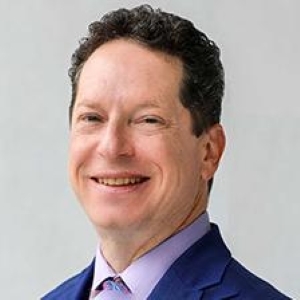On Nov. 15, the Center for Strategic and International Studies (CSIS) held a live event called “A Washingtonian in Beijing.”
The conference included Scott Kennedy, a senior adviser and trustee chair in Chinese Business and Economics at CSIS, and Professor Wang Jisi, president of Peking University's Institute of International and Strategic Studies. Jisi is also an expert on international relations, with a particular focus on U.S.-China relations and Chinese foreign policy.
Kennedy is a specialist on Chinese economic policy, with a focus on industrial policy, innovations in technology and U.S.-China commercial relations.

Scott Kennedy
| CSIS.org
Normally the host, Kennedy, would introduce the speaker and follow up with questions from the audience both in person and online. But this time, Jisi did the moderating.
Kennedy was asked about his visit to China in October, what he found interesting and what made him feel uncomfortable.
“You realize China’s really still in the COVID -- in the middle of the pandemic -- and we (Americans) are beyond it, doing everything we can to forget about it,” Kennedy said. “But there were also some surprises. First, I was surprised that people would be willing to see me. I was told by some that, because of political tensions, that no one would want to see an American. I had lots of meetings. And maybe it was just that I was an available American, and they can reach out and touch me. I was impressed by the low refusal rate for meetings.”
When Jisi asked Kennedy if he thought the trip to China was necessary, he stated that many in the audience had traveled to China many times before, and until now, that question would be an easy one. But since the pandemic, traveling to China has been difficult. Because of Kennedy's association with CSIS, it was made possible.
"Without their support, the trip would not have taken place," Kennedy said. "Traveling there now requires a Chinese cell phone, Chinese cell phone number and a WeChat account. It’s more complicated to get a visa and getting funds accessible in China is a chore. Did I mention the 10-day quarantine in one room?”
Kennedy shared his observations in meeting with some of the Chinese people. Some were nervous to speak with him and to share personal views. That’s particularly true when you first meet someone.
“I’ve been going to China for a while,” Kennedy said. “So I’ve had the chance to meet people, not just for the first time but the 10th or 20th time, and that helps. I would say at one meeting I went to, I was invited to make some opening remarks, and then they went around the room, and they had people speak.”
Kennedy was asked about his personal plans interacting with China in the near future that might include colleagues at CSIS.
“I do feel kind of like Beijing is my second hometown, and I was glad that I was able to finally get back there,” Kennedy said. “I’m just trying to digest this trip, and we’ve got this joint report that you (Jisi) and I are working on. Hopefully, we’ll have that out in a few weeks with some policy recommendations and some analysis about the U.S.-China relationship. I’ve been starting to write some travel logs about different aspects of what it’s like to travel. I have a few more of those to write about with regard to living with Zero COVID and some of the more positive things that I saw that surprised me.”









